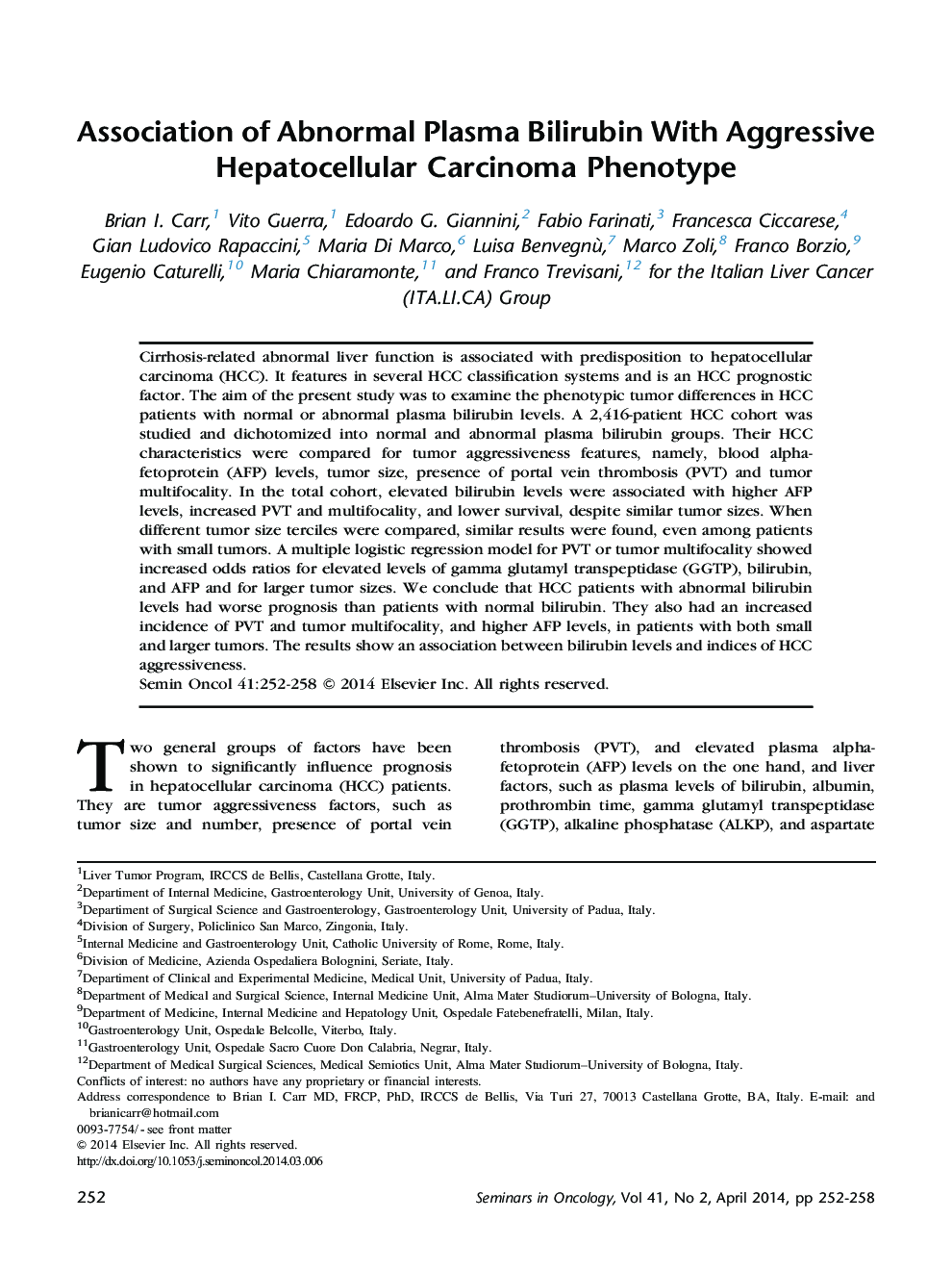| Article ID | Journal | Published Year | Pages | File Type |
|---|---|---|---|---|
| 10924342 | Seminars in Oncology | 2014 | 7 Pages |
Abstract
Cirrhosis-related abnormal liver function is associated with predisposition to hepatocellular carcinoma (HCC). It features in several HCC classification systems and is an HCC prognostic factor. The aim of the present study was to examine the phenotypic tumor differences in HCC patients with normal or abnormal plasma bilirubin levels. A 2,416-patient HCC cohort was studied and dichotomized into normal and abnormal plasma bilirubin groups. Their HCC characteristics were compared for tumor aggressiveness features, namely, blood alpha-fetoprotein (AFP) levels, tumor size, presence of portal vein thrombosis (PVT) and tumor multifocality. In the total cohort, elevated bilirubin levels were associated with higher AFP levels, increased PVT and multifocality, and lower survival, despite similar tumor sizes. When different tumor size terciles were compared, similar results were found, even among patients with small tumors. A multiple logistic regression model for PVT or tumor multifocality showed increased odds ratios for elevated levels of gamma glutamyl transpeptidase (GGTP), bilirubin, and AFP and for larger tumor sizes. We conclude that HCC patients with abnormal bilirubin levels had worse prognosis than patients with normal bilirubin. They also had an increased incidence of PVT and tumor multifocality, and higher AFP levels, in patients with both small and larger tumors. The results show an association between bilirubin levels and indices of HCC aggressiveness.
Related Topics
Life Sciences
Biochemistry, Genetics and Molecular Biology
Cancer Research
Authors
Brian I. Carr, Vito Guerra, Edoardo G. Giannini, Fabio Farinati, Francesca Ciccarese, Gian Ludovico Rapaccini, Maria Di Marco, Luisa Benvegnù, Marco Zoli, Franco Borzio, Eugenio Caturelli, Maria Chiaramonte, Franco Trevisani,
